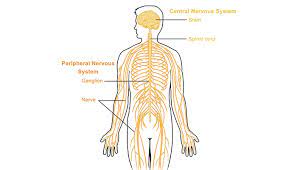A neurologist is a doctor who specializes in the treatment of disorders involving the brain and the rest of the nervous system, which includes the spinal cord and the peripheral nervous system (the nerves connected to the spinal cord.
Accordingly, a child neurologist is a sub-category of neurologist who specializes in treating children with various nervous system disorders. You may also hear child neurologists referred to as “pediatric neurologists.”
Here, we’ll explore the training and tools that child neurologists use and the conditions that they treat.
What Type of Training Do Child Neurologists Undertake?
As medical doctors, neurologists undergo all the routine training that any licensed physician must complete in order to gain their medical degree and medical license. This includes:
- 4 years of undergraduate work
- 4 years of medical school
- 1-2 years in a pediatric residency program. After a medical doctor completes school, they enroll in an apprenticeship program for an additional period to gain real-world experience caring for patients in their chosen specialty.
- 1-2 years of a fellowship. Following a successful residency, many child neurologists further refine their clinical skills through a fellowship program in which they hone in on an extremely narrow focus such as neuromuscular disease or childhood epilepsy.
Child neurologists, in addition to their extensive training, typically also have achieved certification from the American Board of Pediatrics and/or the American Board of Psychiatry and Neurology.
What Conditions Do Child Neurologists Usually Treat?
Because of the vast array of neurological conditions that can impact children, child neurologists treat a similarly large variety of neurological conditions. These can include:
- Seizures/epilepsy
- Developmental disorders such as delayed speech, coordination challenges, cerebral palsy, and delayed motor milestones
- Intellectual disability
- Autoimmune conditions that affect the brain/spinal cord (for example, multiple sclerosis)
- Brain tumors
- Muscle problems potentially leading to weakness (for example, muscular dystrophy and neuropathy)
- Infections/inflammation of the brain (for example, meningitis and encephalitis)
- Headaches, which can be caused by migraines and concussions
- Behavioral disorders, (for example, tics, Tourette Syndrome, attention-deficit/hyperactivity disorder (ADHD), and sleep problems)
- Autism
- Congenital malformations (problems affecting brain formation and/or development)
- Stroke
- Traumatic brain injury (TBI)
- Genetic conditions impacting the nervous system

Again, many neurologists, based on their specific training and clinical practice, specialize in treating one or more nervous system conditions. Parents of children with certain neurological conditions, especially particularly rare ones, should seek out care from a doctor with appropriate experience to achieve the optimal health outcome.
What Diagnostic Tools Do Child Neurologists Use?
When you visit a child neurologist, he or she will physically examine your child, inquire about any relevant symptoms, look at their medical history, and, if necessary, order appropriate diagnostic tests to arrive at the correct diagnosis.
Modern technology has provided many powerful, minimally invasive, affordable, and increasingly accurate diagnostic tools that child neurologists in advanced clinics can use to skillfully diagnose your child.
These tools include:
- MRI (magnetic resonance imaging). Using magnets, the MRI takes high-definition 3D images of your child’s brain, spinal cord, and nerves. MRI is one of the most commonly used diagnostic tools in neurology.
- CT Scan. Via Mayo Clinic: “A computerized tomography (CT) scan combines a series of X-ray images taken from different angles around your body.”
- Lumbar puncture (spinal tap). A trained physician carefully inserts a needle into the space between two lumbar bones (vertebrate) in order to remove a small sample of cerebrospinal fluid for lab analysis. Lumbar puncture is most commonly indicated in cases of suspected meningitis, although there are other applications in child neurology.
- EEG (electroencephalogram). EEG measures brain wave activity to detect any potential anomalies that might inform a diagnosis in your child’s case. The clinician pastes small electrodes across the scalp which are transformed into measurable lines on a graph. In many cases, for example in epilepsy, the doctor is specifically looking out for responses to stimuli such as light. It’s also commonly used in cases of traumatic brain injury (TBI).

- Blood tests. The blood can often tell a lot about any potential nervous system issues. Doctors order them to look for signs of inflammation, for changes to electrolyte levels, or for any genetic conditions that can potentially impact nervous system function.
What Other Doctors and Specialists Do Child Neurologists Work With?
Child neurologists typically practice in fully integrated clinics with a team of specialists behind them doing important supportive work. Examples of the types of specialists that doctors partner with to provide holistic care to their patients include:
- Occupational therapists. Occupational therapists (OTs) help patients battling neurological conditions to achieve a more functional lifestyle. They help child patients adapt based on their unique health challenges to live the fullest life possible.
- Speech therapists. Speech therapists have received highly specific training to help children with speech challenges (problems forming words in the correct syntax) to overcome their difficulties and effectively communicate. Speech-language pathologists (SLPs) also help with chewing and swallowing issues.
- Physical therapists. PTs, which aren’t just for athletes recovering from injury, help their child patients with neurological conditions achieve greater physical functionality using numerous proven techniques. This work includes optimizing strength, flexibility, motion, and movement patterns.
Neurology Moving Forward
The field of neurology — as technological progress marches forward and a greater nuanced understanding of the human body and its various pathological processes advances — has become increasingly specialized over time. Child neurologists, in turn, are focused more and more on very specific childhood neurological conditions and their treatments.
Accordingly, it’s always a good idea to seek care from a child neurologist who is dedicated to treating the condition affecting your child. A specialist will likely be in the best position to deliver optimal outcomes.
Get in Touch With Child Neurology Center of Northwest Florida
We’ve served the Northwest Florida community for over two decades. In that time, we’ve built our reputation on providing consistently superior results to our child patients with a variety of unique challenges.
Our pledge to each family that visits us is to dedicate the full weight of our many resources to effectively treat your child. Please don’t hesitate to contact us to learn more about the important work that we do.

Our expert staff, headed by native Pensacolian Dr. Ben Renfroe, is comprised of award-winning physicians and other healthcare professionals with combined decades of experience treating childhood neurological conditions.
In addition to in-person visits, we also offer telemedicine services to patients for maximum convenience.



